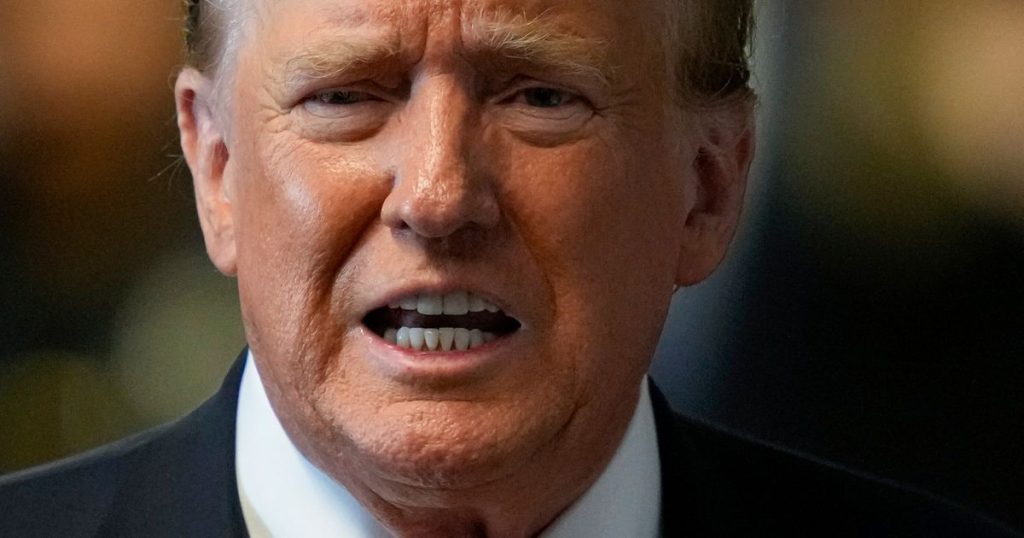The criminal hush-money trial of former President Donald Trump has concluded after a long day of proceedings, with attorneys for both the prosecution and defense presenting closing arguments. Trump’s attorney insisted on his innocence, arguing that the district attorney failed to prove any crimes were committed. The charges stem from a $130,000 payment made to Stormy Daniels by Trump’s former personal attorney, Michael Cohen, in 2016. Despite the allegations, Trump has pleaded not guilty to all counts. The defense argued that the payments were legitimate for Cohen’s legal services and that Trump was unaware of the transaction.
Manhattan District Attorney Alvin Bragg’s office focused on prosecuting Trump for falsifying New York business records, claiming that Trump’s reimbursement to Cohen for the hush money payment was mislabeled as legal expenses. The prosecution alleges that this mislabeling constitutes fraudulent records. Trump’s attorney listed numerous reasons to cast doubt on the case, including the lack of intent to influence the election and questioning claims about extramarital affairs. The defense spent significant time attacking Cohen’s credibility, calling him the “GLOAT,” or the “Greatest Liar Of All Time.”
Prosecuting attorney Joshua Steinglass countered the defense’s arguments, highlighting the abnormality of Trump’s deal with American Media CEO David Pecker to use the National Enquirer to shield Trump from negative stories during his campaign. Steinglass argued that voters had a right to evaluate the allegations about Trump’s affairs. He emphasized the mountain of evidence that would need to be disregarded to accept Trump’s defense. Steinglass connected dots in the case, pointing to witnesses who testified against Trump and the existence of an alleged conspiracy between Trump’s campaign and AMI. He provided reasoning for why jurors should find Trump guilty, citing Trump’s micromanagement style, Cohen’s self-promotion, and the scheme benefiting only Trump.
Steinglass addressed the defense’s claim that Cohen acted independently by pointing out that Cohen delayed the hush money payment to Daniels to align with Trump’s wishes. The prosecutor argued that Cohen was not acting as a rogue actor but was following Trump’s directions. He emphasized that the false business record solely benefited Trump. Despite Trump’s defense strategy of casting doubt on the evidence, Steinglass urged the jury to consider the case as a whole, emphasizing that the prosecution has proven the case beyond a reasonable doubt. The trial will soon go into deliberations, with the jury tasked with deciding Trump’s fate in the matter.








